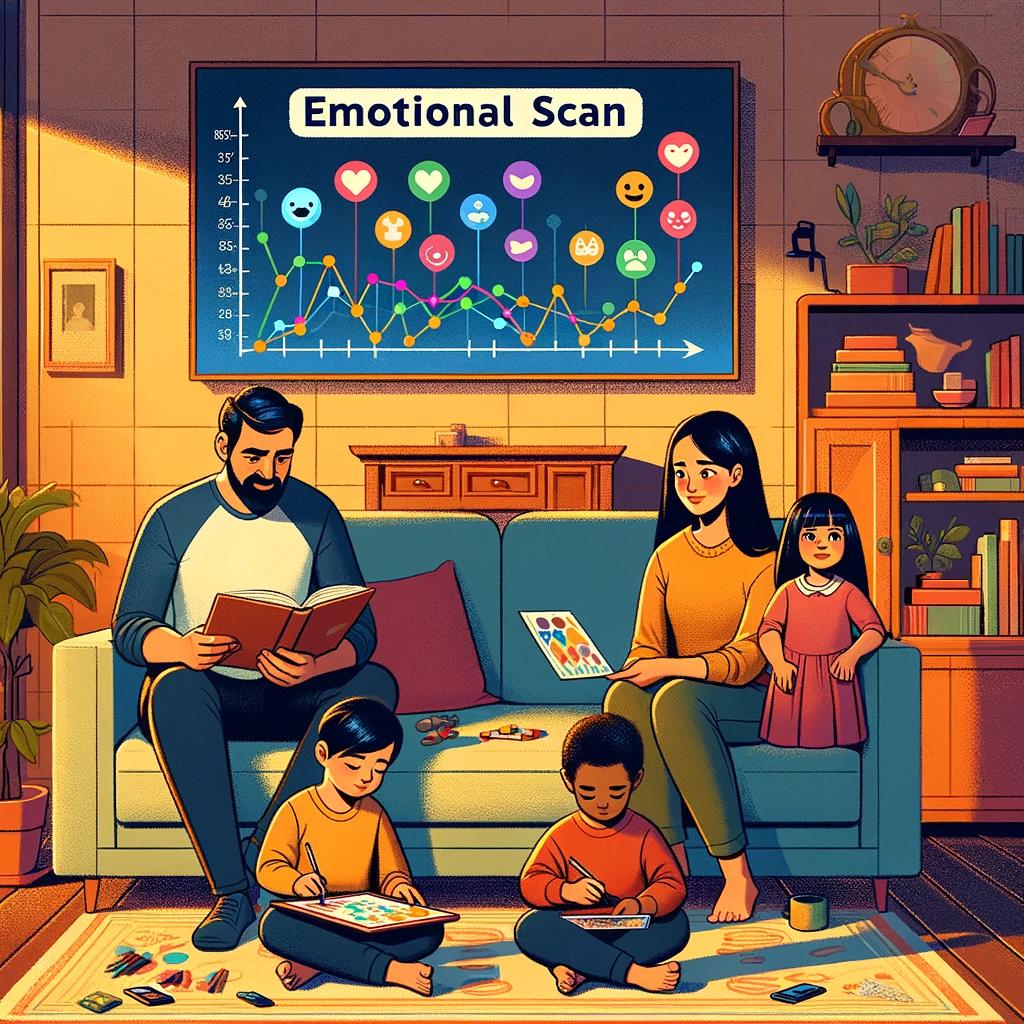Emotional Scan
Diagnose
Remote Video – Interview Types
Do you feel overwhelmed by your emotions?
If you need Counseling, you are in a Crisis, or you want to Improve.
Just perform a simple Remote Video Interview and
Scientifically Diagnose Emotions to improve people´s lives.
Marriage & Couples Counseling
Personal Self Improvement
Middle Age Crisis
Neither study nor work
Uncomfortable in Work
Fired Person Crisis
Entrepreneur Viability
Family Scan
Uncomfortable in Life
Substance Abuse
Senior Citizens Anxiety
Top Level Executives Coaching
Career Transition Planning
Uncomfortable in School
College Students Improvement
Happiness Fingerprint - Diagnose
Emotional Scan (AI) can help doctors, coaches, and therapists increase emotional awareness for their patients by reviewing specific issues, expressing empathy, and delivering diagnoses more quickly and accurately. It can also be an essential tool to predict how patients will approach therapy and take steps to ensure they are successful and remain in treatment.
Marriage and Couples Counseling is a therapy that focuses on improving communication and resolving conflicts between couples. It can be helpful for couples experiencing difficulties in their relationship, such as frequent arguments, lack of intimacy, or difficulties with trust.
During marriage and couples counseling sessions, the therapist works with both partners to identify the issues causing problems and develop strategies for resolving them. This may involve learning new communication skills, developing a deeper understanding of each other’s needs and wants, and exploring ways to rebuild trust.
Counseling sessions can take place in person or online and may be led by a licensed therapist or counselor. The length and frequency of the sessions will depend on the couple’s needs and the therapist’s recommendation.
Marriage and couples counseling can be a valuable tool for improving relationships and helping couples to build stronger, healthier partnerships and prevent issues from escalating and potentially leading to separation or divorce.
Feeling Uncomfortable in Life can be a common experience for many people, especially during change or uncertainty. It can manifest in a variety of ways, such as feeling restless, anxious, or dissatisfied with one’s current situation.
Identify the source. Is it related to your career, relationships, or a major life transition? Understanding the source of your discomfort can help you develop a plan to address it.
Verbalizing your thoughts and feelings can be helpful. If you feel like you need more support, consider reaching out to a mental health professional. Embrace change: Sometimes discomfort can be a sign that it’s time to change your life.
Approach change with an open mind and a willingness to learn and grow. Remember, feeling uncomfortable at life is a common experience, and asking for help is okay if you need it. With time and effort, you can work towards feeling more comfortable and fulfilled in your life.
Personal Self-Improvement refers to improving oneself through intentional actions and behaviors.
Here are some tips for personal self-improvement:
Set specific goals: Identify areas in your life that you want to improve and set specific, measurable goals for each.
Develop new skills: Learn new skills that will help you personally and professionally.
Cultivate positive habits: Create habits that support your goals and contribute to your overall well-being.
Prioritize self-care: Take care of yourself physically, emotionally, and mentally.
Seek feedback: Ask for feedback from others on areas you want to improve.
Celebrate your successes: Recognize your progress and use it as motivation to continue improving.
Remember that personal self-improvement is a journey, not a destination. Making meaningful changes in your life takes time, effort, and commitment. But by taking small steps every day, you can progress toward becoming the best version of yourself.
Substance Abuse is a pattern of harmful or hazardous use of drugs or alcohol that leads to negative consequences for the individual, their relationships, and their community. It is a complex issue with physical, psychological, and social consequences. Here are some tips for dealing with substance abuse:

















